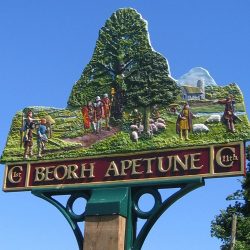If, like me, you are the ‘Compleat Bookworm’, interested in the natural world and a big fan of Robert Macfarlane’s books then you will have greeted his latest, ‘Landmarks’, with great pleasure. If you have read his other books you will also have appreciated his knowledgeable, elegant and precise use of language. His books are not a quick read, they need a meditative turn of mind.
‘Landmarks’ is a return to a lost vocabulary, the language of landscape, both formal and dialect. It is a defence of the spirit of language. For years he has collected words used by fishermen, scientists, climbers or walkers, words used in geology, archaeology, forestry and mountaineering, words connected with water, mountains, woods and edgelands. It is a word hoard from Gaelic, Welsh Irish, Scots and English counties.
Even flicking through this book one realises how impoverished our language is today with its thoughtless and empty clichés, ‘over the moon’, ‘keeping you in the loop’, ’it’s all gone pear shaped’ and ‘taking a rain check’.
Man has always named places and actions and this book reveals a vast and imaginative treasure trove of words, either lost or now only used by a few. He tells of other writers who he admires, who loved and knew well their particular landscape. Nan Shepherd, Roger Deacon, J. Baker and Richard Jefferies, he sees their particular places through their eyes and experiences.
An unusual book, thought provoking and a great call for reconnecting with the natural world. Hooray for Robert Macfarlane.
Ammil: the sparkle of morning sunlight through hoar-frost.(Devon).
Pirr: a light breath of wind such as will make a cat’s paw on the water. (Shetlands).
Blinter: an ice splinter catching a lowlight. (Scots).
Eit: placing quartz stones in moorland streams so they sparkle in moonlight and attract salmon in late summer. (Gaelic).
Zugs: soft, wet ground, a little bog island about the size of a bucket. (Exmoor).
Pat Mlejnecky
